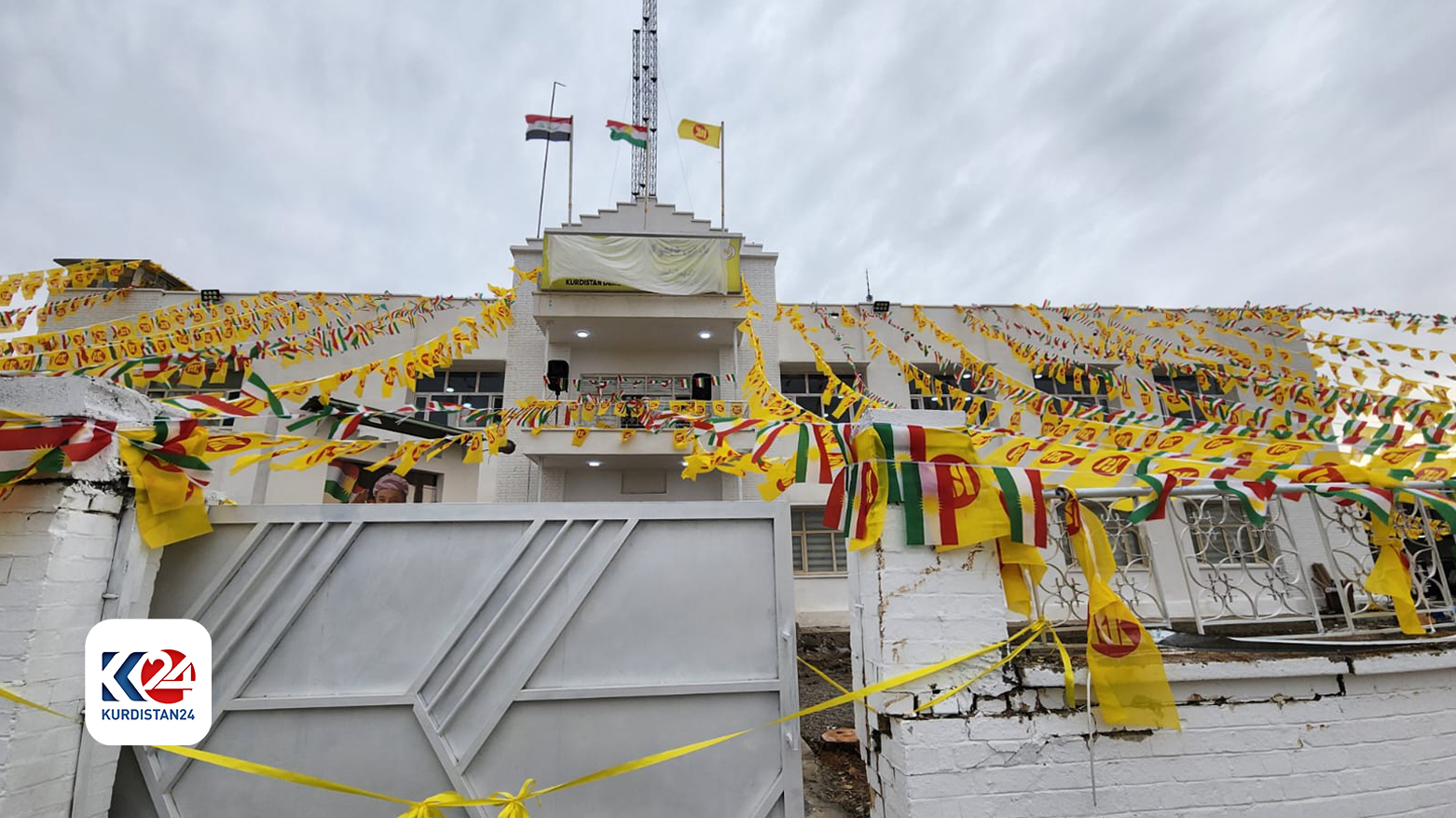KDP reopens headquarters in Kirkuk

ERBIL (Kurdistan 24) – The Kurdistan Democratic Party’s (KDP) headquarters in Kirkuk were formally reopened on Sunday morning.
Thousands of Kurdistan and KDP flags are being displayed at the headquarters of the third branch of the KDP in Kirkuk, which has undergone serious renovation over the course of the past two weeks in preparation for the unveiling ceremony.
Meanwhile, Deputy Speaker of the Iraqi Parliament and KDP lawmaker Shakhawan Abdullah told Kurdistan 24 "We return to Kirkuk to strengthen coexistence and unity between communities and to put an end to this imposed situation, corruption, and tyranny of officials, as well as the lack of governance in this city."
The party’s main headquarters, which formerly served as its Kirkuk leadership office, is still currently being used by the Iraqi Joint Operations Command Centre. Prior to this, it was the Iraqi Counter Terrorism Services headquarters briefly after the events of the Kurdish referendum in 2017.
The Iraqi Turkmen Front and Arabic Coalition headed by Rakan Al-Jabouri, who has been acting as Kirkuk governor since 2017, have publicly opposed the KDP’s return to the oil-rich province.
Earlier in August, Shiite protestors blocked the main road from Kirkuk to Erbil after Iraqi Prime Minister Mohammed Shia' al-Sudani notified the Popular Mobilization Forces (PMF) that they were to hand over certain offices for the return of the KDP. Kurdish counterprotests ensued, and four Kurds were shot dead, drawing strong condemnations from Erbil.
Kirkuk, along with parts of Diyala and Saladin provinces, have been disputed territories between the Kurds and Iraqi governments for decades. Per the Iraqi Constitution’s Article 140, the status of these areas had to be decided by the local population in a referendum following the de-Arabization process by no later than 2007.
